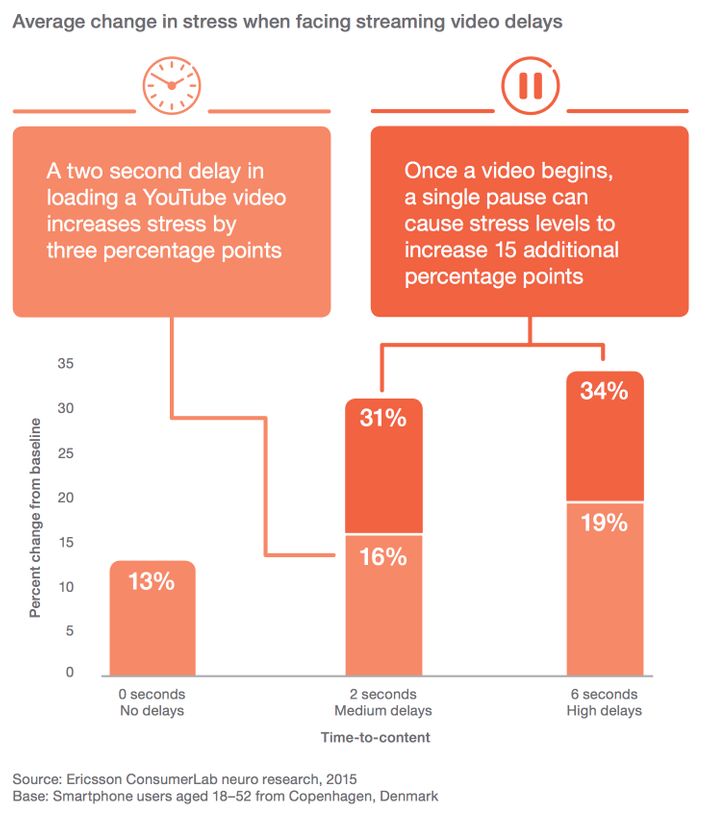
At the Mobile World Congress last month, tech company Ericsson released a new report claiming that delays in loading web pages and videos lead to notable increases in stress levels. As if you didn’t already know that.
The study, which specifically looked at using the web while under time constraints, showed that, “On average, single delays resulted in a 38 percent increase in heart rate.” When video re-buffered — which it always does, right before the funny part you’re showing your friends — stress levels (evaluated at a pre-task baseline) rose from 19 percent to 34 percent.

From the study:
A medium delay of 2 seconds when loading videos led average stress levels to go from 13 percent to 16 percent above the baseline. Once a video started to stream, a pause due to re-buffering caused stress levels to further increase by 15 percentage points. With high time-to-content delays of 6 seconds, half of the participants exhibited a 19 percent increase relative to baseline levels while the other half exhibited signs of resignation — their eye movements indicated distraction and stress levels dropped.
Researchers said that the type of stress response that we experience with slow loading was comparable to a horror movie or solving a math problem. So if you spend hours online, congratulations, your body is experiencing the stress of a horror movie all day, every day.





























